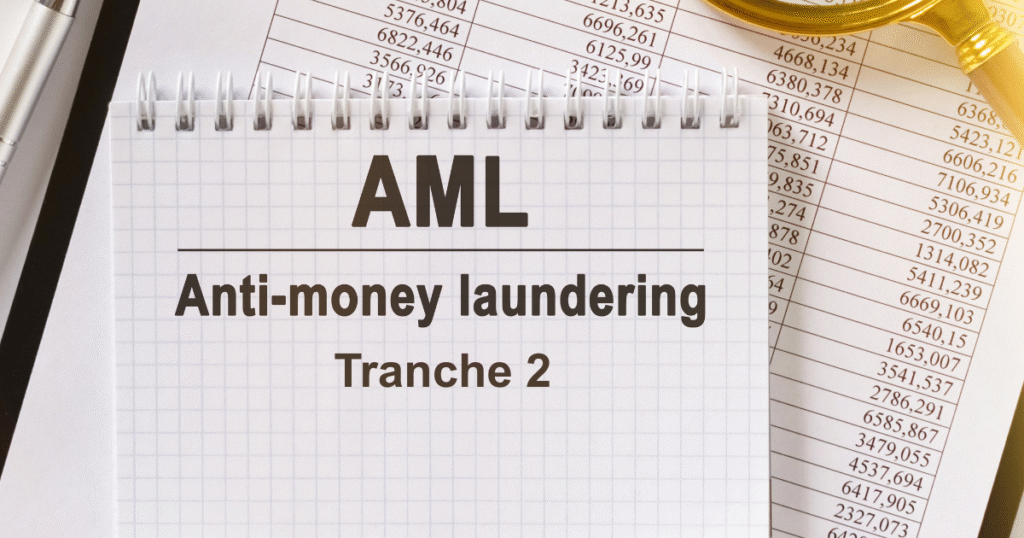Introduction
Australia’s anti-money laundering and counter-terrorism financing (AML/CTF) regime is a central part of the Australian government’s efforts to combat illicit financing and terrorism financing. The core of this regime is the Anti-Money Laundering and Counter-Terrorism Financing Act 2006 (Cth), which places obligations on reporting entities to help prevent money laundering and terrorism financing. These measures are in line with international standards set by the Financial Action Task Force (FATF).
In the Anti-Money Laundering and Counter-Terrorism Financing Amendment Act 2024 (Cth), significant amendments were introduced to modernise and extend the AML/CTF regime. These amendments aim to improve the effectiveness of Australia’s anti-money laundering and counter-terrorism financing measures and to simplify compliance for reporting entities. This guide explains the key aspects of these Australian laws and regulations.
Understanding Australia’s Anti-Money Laundering (AML) and Counter-Terrorism Financing (CTF) Regime
The Core Objectives of AML and CTF Laws
Australia’s AML/CTF regime is crucial to prevent criminals from enjoying the benefits of their illegal activities and to stop funds from reaching terrorist organisations. Illicit financing is central to most types of crime and significantly impacts the safety and well-being of Australian communities, as well as distorting legitimate markets and economic activities. The AML/CTF regime is a key component of Australia’s broader efforts to combat financial crime and protect the integrity of its financial system.
The primary objectives of these laws are to:
- Deter financial crimes: By implementing measures to detect and prevent money laundering and terrorism financing, the regime aims to discourage individuals and groups from engaging in illicit activities.
- Protect the financial system: These laws are designed to safeguard Australia’s financial system from being exploited for illegal purposes, maintaining its stability and reputation.
- Align with international standards: Australia’s AML/CTF regime is developed to meet international standards set by the FATF, ensuring the country’s approach is consistent with global efforts to combat financial crime.
Key Legislation: The Anti-Money Laundering and Counter-Terrorism Financing Act 2006 (Cth)
The principal legislation governing anti-money laundering and counter-terrorism financing in Australia is the Anti-Money Laundering and Counter-Terrorism Financing Act 2006 (Cth) (AML/CTF Act). The Australian Government department responsible for this Act is the Attorney-General’s Department. The AML/CTF Act, along with its associated Anti-Money Laundering and Counter-Terrorism Financing Rules 2007 (Cth) (AML/CTF Rules), establishes the legal framework for combating money laundering and terrorism financing in Australia.
The AML/CTF Act is designed to:
- Deter and detect: Provide mechanisms to deter and detect money laundering and terrorism financing activities.
- Disrupt: Disrupt the flow of illicit funds and prevent them from being used for criminal purposes.
- Financial intelligence: Generate financial intelligence for revenue and law enforcement agencies to investigate and prosecute financial crimes.
The AML/CTF Act takes a risk-based approach to regulation, outlining general principles and obligations for regulated businesses known as reporting entities.
The 2024 Amendments: Expanding and Modernising the AML/CTF Regime
Tranche 2 Entities: Extension to Lawyers, Accountants, and Real Estate Professionals
The Anti-Money Laundering and Counter-Terrorism Financing Amendment Act 2024 (Cth) (Amendment Act) brings significant changes to Australia’s AML/CTF regime. Specifically, these amendments extend the AML/CTF framework to encompass certain designated services provided by:
- Real estate professionals
- Lawyers
- Accountants
- Trust and company service providers
- Dealers in precious stones and metals
This expansion aims to align Australia with international standards and address areas identified as having a higher risk of money laundering and terrorism financing. An estimated 90,000 new reporting entities will now be required to comply with the AML/CTF Act. In addition, these designated services are considered to be at the highest risk of money laundering within these sectors—for instance, acting as an agent in the buying and selling of real estate is recognised as a designated service.
Simplification and Clarification of AML/CTF Obligations
A key objective of the 2024 amendments is to simplify and clarify the AML/CTF regime while improving its effectiveness. The aim is to make it easier for businesses to understand and comply with their obligations, thereby increasing flexibility, reducing regulatory burdens, and better supporting businesses in preventing and detecting financial crime.
The reforms replace existing prescriptive compliance requirements with outcome-focused obligations. As part of this shift, reporting entities must conduct a money laundering, terrorism financing, and proliferation financing risk assessment; they are also required to implement robust policies for effective AML/CTF compliance. These changes ensure that AML/CTF programs are more specifically tailored to the risks faced by different businesses, ultimately promoting a more efficient and effective approach to compliance.
Modernisation to Address Evolving Risks and Technologies
The amendments also seek to modernise the AML/CTF regime to reflect changing business structures, emerging technologies, and evolving illicit financing methods. For example, the regulation of digital currency along with virtual asset and payment technologies is being updated in recognition of their increasing use and the associated money laundering and terrorism financing risks.
By modernising the regime, the Australian government intends to ensure that it remains fit-for-purpose and capable of effectively responding to the evolving threat environment. These updates are crucial for maintaining the integrity of the Australian financial system and for aligning with international standards in combating illicit financing in the face of technological advancements and changing criminal methodologies.
Key Compliance Requirements for Reporting Entities
Enrolment and Registration with AUSTRAC
Reporting entities are required to enrol and register with AUSTRAC, the Australian Transaction Reports and Analysis Centre, if they provide a designated service. This is a mandatory step for businesses operating within regulated sectors to ensure they are recognised and supervised under Australia’s AML/CTF framework. Enrolment and registration also allow AUSTRAC to conduct necessary checks, particularly for remittance service providers and digital currency exchange providers, to prevent criminals from operating in these sectors. New reporting entities providing designated services due to the 2024 amendments must enrol with AUSTRAC by 31 March 2026 and comply with the AML/CTF Act by 1 July 2026.
Developing and Maintaining an AML/CTF Program
Regulated entities are obligated to develop and maintain an AML/CTF Program. This program is crucial for identifying, mitigating, and managing the risks of money laundering and terrorism financing that reporting entities may face when providing designated services. The AML/CTF program should include systems and controls tailored to the specific risks of the business.
Key components of an AML/CTF program include:
- Risk Assessment: Conducting a thorough assessment of money laundering and terrorism financing risks relevant to the business. This assessment should consider the nature, size, and complexity of the business, customer types, services offered, delivery methods, and operating jurisdictions.
- AML/CTF Policies: Implementing policies and procedures to manage and mitigate identified risks. These policies should address customer due diligence, transaction monitoring, and ongoing compliance measures.
- Compliance Officer: Appointing a designated AML/CTF compliance officer at a management level to oversee the program and ensure its effectiveness.
- Employee Training: Providing regular AML/CTF training to employees to ensure they understand their obligations and can identify and report suspicious activities.
- Independent Review: Conducting periodic independent reviews of the AML/CTF program to ensure it remains effective and compliant with regulatory requirements.
Customer Due Diligence and Ongoing Monitoring
Customer due diligence (CDD) is a fundamental aspect of AML/CTF compliance for reporting entities. It involves verifying a customer’s identity and understanding their risk profile before providing a designated service. CDD is not a one-time task but an ongoing process throughout the business relationship.
Key aspects of CDD and ongoing monitoring include:
- Initial Customer Due Diligence (ICDD): Establishing a customer’s risk rating and verifying their identity before providing designated services. This includes identifying beneficial owners, politically exposed persons (PEPs), and sanctioned individuals.
- Ongoing Customer Due Diligence (OCDD): Continuously monitoring business relationships and transactions to identify any inconsistencies or suspicious activities. Transaction monitoring is a critical component of OCDD.
- Enhanced Customer Due Diligence (ECDD): Applying enhanced measures for high-risk customers, including PEPs, customers from high-risk jurisdictions, or when suspicious matter reports have been filed. ECDD may also be required in nested services relationships where reliance is placed on overseas counterparts’ due diligence.
Get Your Free Initial Consultation
Request a Free Consultation with one of our experienced AML Lawyers today.
Reporting Obligations: Suspicious Matters, Threshold Transactions, and Cross-Border Transfers
Reporting entities have several reporting obligations to AUSTRAC to aid in combating illicit financing. These obligations are crucial for providing financial intelligence to law enforcement and regulatory agencies.
Key reporting obligations include:
- Suspicious Matter Reports (SMRs): Reporting any suspicious activities that may indicate money laundering or terrorism financing. A suspicion arises when there are grounds to suspect a person is not who they claim to be, or that the activity may be related to a criminal offence. Reports must be submitted to the AUSTRAC CEO within 24 hours or three days, depending on the nature of the suspicion.
- Threshold Transaction Reports (TTRs): Reporting cash transactions of 10,000 or more. This includes physical currency transactions and may extend to other forms of value transfer as defined under the Anti-Money Laundering and Counter-Terrorism Financing Act 2006 (Cth) (AML/CTF Act).
- International Funds Transfer Instructions (IFTIs) / International Value Transfer Services (IVTS): Reporting instructions for the transfer of value sent into or out of Australia. The reporting obligation for international transfers is shifting from IFTIs to IVTS, focusing on the movement of value and the entities with the closest relationship to the payer or payee.
- Cross-border Movement Reports: Reporting the physical movement of monetary instruments into or out of Australia.
Record Keeping Requirements
Reporting entities are required to maintain comprehensive records related to transactions, customer identification, and AML/CTF programs. These records are essential for assisting in the investigation of financial crime and demonstrating compliance with the AML/CTF regime.
Key record-keeping requirements include:
- Transaction Records: Maintaining detailed records of all designated service transactions.
- Customer Identification Records: Keeping records of customer due diligence processes and identity verification information.
- AML/CTF Program Records: Documenting the AML/CTF program, risk assessments, policies, and any reviews or updates.
Records must be retained for a minimum of seven years and be readily available to law enforcement and AUSTRAC when required.
AUSTRAC: Australia’s AML/CTF Regulator and Financial Intelligence Unit
AUSTRAC’s Functions: Supervision, Intelligence, and Enforcement
AUSTRAC, the Australian Transaction Reports and Analysis Centre, is Australia’s AML/CTF regulator and specialist financial intelligence unit. As the primary anti-money laundering financial intelligence agency, AUSTRAC plays a vital role in monitoring and enforcing AML/CTF laws across the country.
Its core functions include:
- Supervising Compliance: AUSTRAC is responsible for overseeing and ensuring that reporting entities comply with Australia’s AML/CTF regime. This involves monitoring over 17,000 designated service entities spanning sectors such as financial services, gambling, bullion, remittance, and digital currency exchange providers.
- Collecting and Analysing Financial Intelligence: A fundamental part of its mandate is gathering and analysing financial intelligence pursuant to the reporting obligations under the AML/CTF Act. This analysis is vital for understanding financial crime trends and identifying potential threats from money laundering and terrorism financing.
- Disseminating Intelligence: AUSTRAC disseminates the gathered intelligence to various agencies—including law enforcement, national security, revenue, and regulatory bodies—both domestically and internationally. This sharing of information supports investigations and prosecutorial efforts against money laundering, terrorism financing, and other significant financial crimes.
- Enforcement: Additionally, AUSTRAC is empowered to enforce AML/CTF laws by taking action against reporting entities that fail to meet their obligations. These actions can range from issuing infringement notices to pursuing civil penalties.
Enhanced Powers of AUSTRAC under the 2024 Amendments
The Amendment Act introduces expanded powers for AUSTRAC designed to bolster its regulatory and enforcement capabilities. These enhanced powers enable AUSTRAC to more effectively monitor, investigate, and enforce compliance with the AML/CTF regime, particularly in response to evolving risks and the expansion of reporting entities.
Key enhanced powers include:
- Examination Power: This new power enables AUSTRAC to compel individuals to provide information and documents and to appear before an examiner to answer questions. By doing so, it strengthens the agency’s ability to gather detailed information relevant to compliance and potential breaches of AML/CTF obligations.
- Broader Intelligence-Gathering Powers: The amendments grant AUSTRAC wider powers to access information from a broader range of sources. This improvement enhances its capacity to analyse financial transactions and activities linked to money laundering and terrorism financing.
- Amended Compulsory Information-Gathering Powers: AUSTRAC’s existing powers to compel information gathering are extended to include information pertinent to offences under the Crimes Act 1914 (Cth) or the Criminal Code, insofar as they relate to the AML/CTF Act. This ensures that AUSTRAC can obtain all necessary information to investigate potential offences effectively.
These expanded powers signify a move toward a more proactive enforcement approach, ensuring that AUSTRAC remains effective in combating money laundering and terrorism financing amid an increasingly complex financial environment.
Get Your Free Initial Consultation
Request a Free Consultation with one of our experienced AML Lawyers today.
Penalties for Non-Compliance with AML/CTF Laws
Civil and Criminal Penalties for AML/CTF Breaches
The AML/CTF Act outlines penalties for non-compliance in Parts 12 and 15, which include both criminal and civil penalties. Criminal penalties are reserved for serious breaches of the AML/CTF rules. These serious breaches can result in:
- Significant terms of imprisonment, ranging from two to ten years
- Substantial fines from $37,560 to $3,130,000
Civil penalties apply to a broader range of AML breaches. For individuals, these penalties can reach up to $6.6million; for corporations, penalties may be as high as $33 million. The Federal Court of Australia determines the exact penalty amount based on factors outlined in subsection 175(3) of the AML/CTF Act. Moreover, in less severe cases, an infringement notice may be issued, carrying a penalty of $18,780 for corporations and $3,756 for individuals.
Recent Enforcement Actions and Case Examples
Recent enforcement actions by AUSTRAC highlight the serious consequences of AML/CTF non-compliance for reporting entities. In CEO of AUSTRAC v SkyCity Adelaide Pty Ltd [2024] FCA 664, the Federal Court of Australia ordered SkyCity Adelaide Pty Ltd (SkyCity) to pay a penalty of $67 million to AUSTRAC for breaches of the AML/CTF Act in June 2024. The court found that SkyCity failed in its obligations by allowing high-risk customers to move large sums of money through the casino, and by failing to establish proper oversight of its AML/CTF programs.
In addition, this was the second major civil penalty secured by AUSTRAC against an Australian casino. In July 2023, both Crown Melbourne and Crown Perth were ordered to pay $450 million for their breaches of the AML/CTF Act in AUSTRAC v Crown Melbourne Limited & Anor [2023] FCA 782.
These cases clearly demonstrate AUSTRAC’s commitment to enforcing compliance and the potential for substantial financial penalties for businesses that fail to meet their anti-money laundering and counter-terrorism financing obligations.
Conclusion
Australia’s AML/CTF regime is undergoing significant reforms with the Amendment Act. It is crucial for businesses, especially those newly designated as reporting entities, to understand these changes and proactively prepare for compliance to mitigate the risks of illicit financing and avoid substantial penalties for non-compliance.
Navigating the complexities of AML/CTF laws can be challenging, particularly with the introduction of these extensive reforms. Our team offers unparalleled expertise in developing tailored AML/CTF programs and providing practical solutions to help your organisation effectively manage money laundering and terrorism financing risks. For expert guidance and support in ensuring your business meets its AML/CTF obligations, contact AML House today.
Frequently Asked Questions
The primary law governing anti-money laundering and counter-terrorism financing in Australia is the Anti-Money Laundering and Counter-Terrorism Financing Act 2006 (Cth). This Act is central to the Australian government’s efforts to combat illicit financing and terrorism financing.
Reporting entities under the AML/CTF Act are persons or businesses that provide a ‘designated service’. These are regulated by the AML/CTF Act.
Designated services broadly include businesses operating in financial services, gambling, bullion services, remittance service providers, and digital currency services. These services are listed in section 6 of the AML/CTF Act.
Tranche 2 entities refer to certain designated services provided by professionals such as real estate agents, lawyers, accountants, trust and company service providers, and dealers in precious stones and metals. With the Amendment Act, these Tranche 2 entities are now included as reporting entities under the AML/CTF regime.
An AML/CTF program is a framework that reporting entities must develop and maintain to identify, mitigate, and manage the risks of money laundering and terrorism financing they may face. It is required to protect the financial system and prevent it from being used for illicit activities.
CDD is the process that reporting entities must undertake to verify a customer’s identity and understand their risk profile before providing a designated service. It is a fundamental aspect of AML/CTF compliance.
Reporting entities must report several types of transactions to AUSTRAC, which are crucial for combating illicit financing. These include:
Suspicious Matter Reports: Reports of any activities that may indicate money laundering or terrorism financing.
Threshold Transaction Reports: Reports for cash transactions of $10,000 or more.
International Funds Transfer Instructions / International Value Transfer Services: Reports for instructions for the transfer of value sent into or out of Australia.
Cross-border Movement Reports: Reports for the physical movement of monetary instruments into or out of Australia.
Failure to comply with AML/CTF regulations can result in severe penalties. Corporations may face civil penalties up to $33million, while individuals can face civil penalties up to $6.6 million. Criminal penalties for serious breaches can include imprisonment and substantial fines.
Reporting entities can seek assistance from firms like AML House, which offer expertise in developing tailored AML/CTF programs and providing guidance on compliance obligations. These experts can help businesses navigate the complexities of AML/CTF laws and ensure they meet their regulatory requirements.








